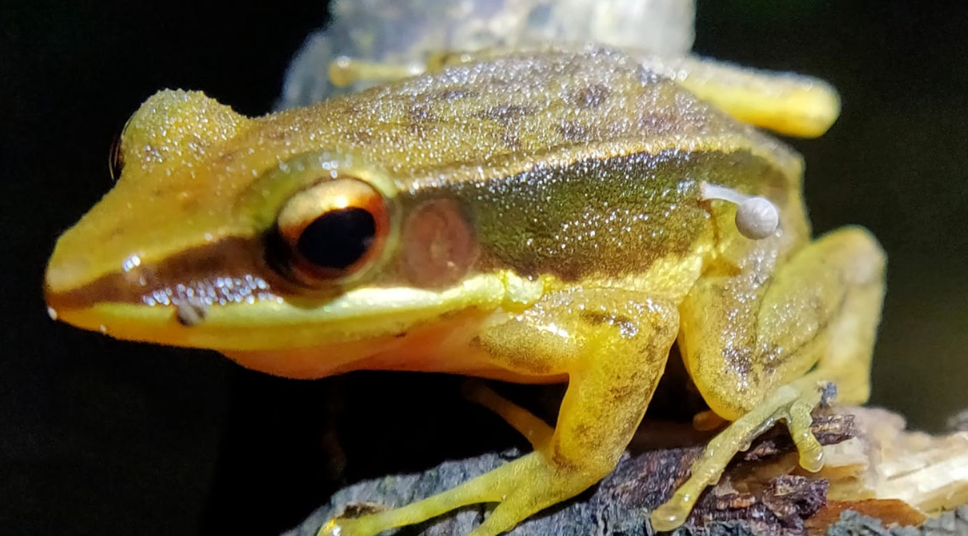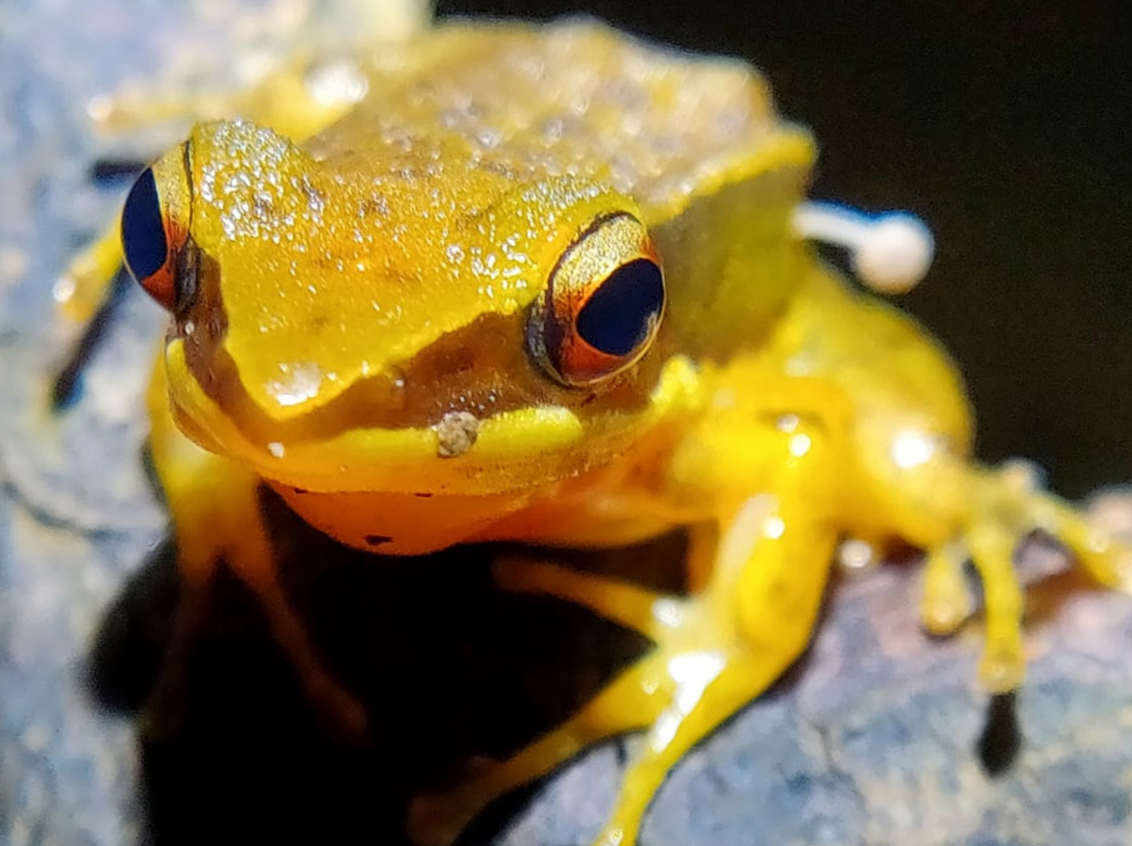Mushroom sprouting from live frog in India leaves scientists stunned
Mushroom growing on live organism has never been previously documented
Your support helps us to tell the story
From reproductive rights to climate change to Big Tech, The Independent is on the ground when the story is developing. Whether it's investigating the financials of Elon Musk's pro-Trump PAC or producing our latest documentary, 'The A Word', which shines a light on the American women fighting for reproductive rights, we know how important it is to parse out the facts from the messaging.
At such a critical moment in US history, we need reporters on the ground. Your donation allows us to keep sending journalists to speak to both sides of the story.
The Independent is trusted by Americans across the entire political spectrum. And unlike many other quality news outlets, we choose not to lock Americans out of our reporting and analysis with paywalls. We believe quality journalism should be available to everyone, paid for by those who can afford it.
Your support makes all the difference.Scientists have made a baffling discovery of a frog with a small mushroom sprouting from its leg in the lush foothills of India’s Western Ghats.
The finding marks the first ever time a mushroom has been spotted growing on live animal tissue, researchers affiliated with the World Wildlife Fund say.
Since the frog was not captured to be studied further, images shared online of the amphibian with a mushroom growing near its hind leg sparked intrigue among scientists.
The frog species, named Rao’s intermediate golden-backed frog (Hylarana intermedia), is a creature native to this region – one of the world’s most biodiverse.
Fungus experts identified the mushroom to be a Bonnet Mushroom (Mycena sp.), which is known to occur mostly on rotting wood.

Several microbes, including bacteria and fungi, have been known to grow along with organisms with most of them being symbiotic or at least benign.
There are also however, some that can cause infections under certain circumstances, such as the fungi causing athlete’s foot, yeast infections, or the oral fungal disease candidiasis.
However, a mushroom growing on a live organism has never been previously documented, according to the study, published in the journal Reptiles and Amphibians.
“To the best of our knowledge, never has a mushroom sprouting from the flank of a live frog been documented,” researchers said.
This could be because mushrooms require nutrients that are usually not present adequately on the skin of any animal.
Researchers suspect that in the latest case, the humid, monsoon-fed Western Ghats may have provided an ideal environment for mushroom growth, providing adequate moisture and organic matter.

The exact nature of the mushroom growing on the frog – whether it is infectious or benign, and how deep it had penetrated the skin – remains unclear.
This could be a cause for concern as already frogs and hundreds of other amphibian species across the world are under threat by another parasitic fungus called Batrachochytrium dendrobatidis – more commonly known as the chytrid fungus.
Chytrid fungus infections have led to a steady decline of amphibian populations globally as they throw off the balance of water and salt on the skin of these species and eventually cause heart failure.
However recent studies show that this amphibian killer fungus is present in low levels in frog hotspots across India.
Join our commenting forum
Join thought-provoking conversations, follow other Independent readers and see their replies
Comments